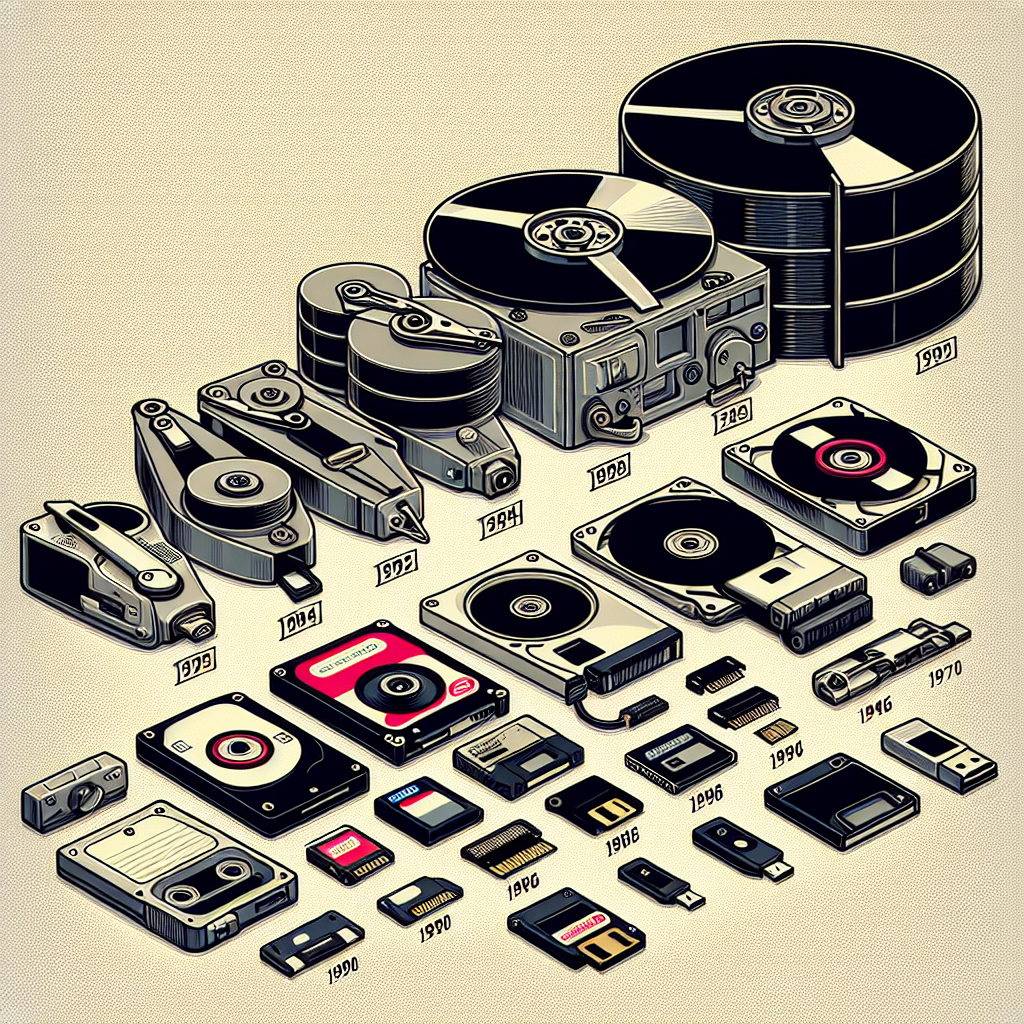Your cart is currently empty!
The Evolution of Hard Drives: From Floppy Disks to SSDs

Hard drives have come a long way since the early days of computing. From the bulky and slow floppy disks to the lightning-fast solid-state drives (SSDs) of today, the evolution of hard drives has been nothing short of remarkable.
In the 1970s, the floppy disk was introduced as a portable storage medium for computers. These disks were thin, flexible plastic squares that could store a few hundred kilobytes of data. While revolutionary at the time, floppy disks were slow, unreliable, and had limited storage capacity.
In the 1980s and 1990s, the hard disk drive (HDD) became the dominant form of storage for computers. HDDs used spinning magnetic disks to store data, offering much larger storage capacities and faster read/write speeds than floppy disks. However, HDDs were still prone to mechanical failures and were relatively slow compared to modern storage technologies.
In the early 2000s, the introduction of solid-state drives (SSDs) marked a significant shift in the evolution of hard drives. SSDs use flash memory to store data, eliminating the need for moving parts and significantly increasing read/write speeds. SSDs are also more durable and reliable than HDDs, making them the preferred choice for high-performance computing tasks.
Today, SSDs have become the standard storage medium for laptops, desktops, and servers. With capacities ranging from a few hundred gigabytes to several terabytes, SSDs offer lightning-fast performance and improved energy efficiency compared to traditional HDDs.
Looking ahead, the future of hard drives is likely to be dominated by advancements in SSD technology. Manufacturers are constantly pushing the boundaries of SSD performance, with faster read/write speeds, higher capacities, and lower prices becoming increasingly common.
In conclusion, the evolution of hard drives from floppy disks to SSDs has been a fascinating journey. While floppy disks and HDDs were groundbreaking in their time, SSDs have revolutionized the way we store and access data. As technology continues to advance, it’s exciting to think about what the future holds for the world of hard drives.

Leave a Reply